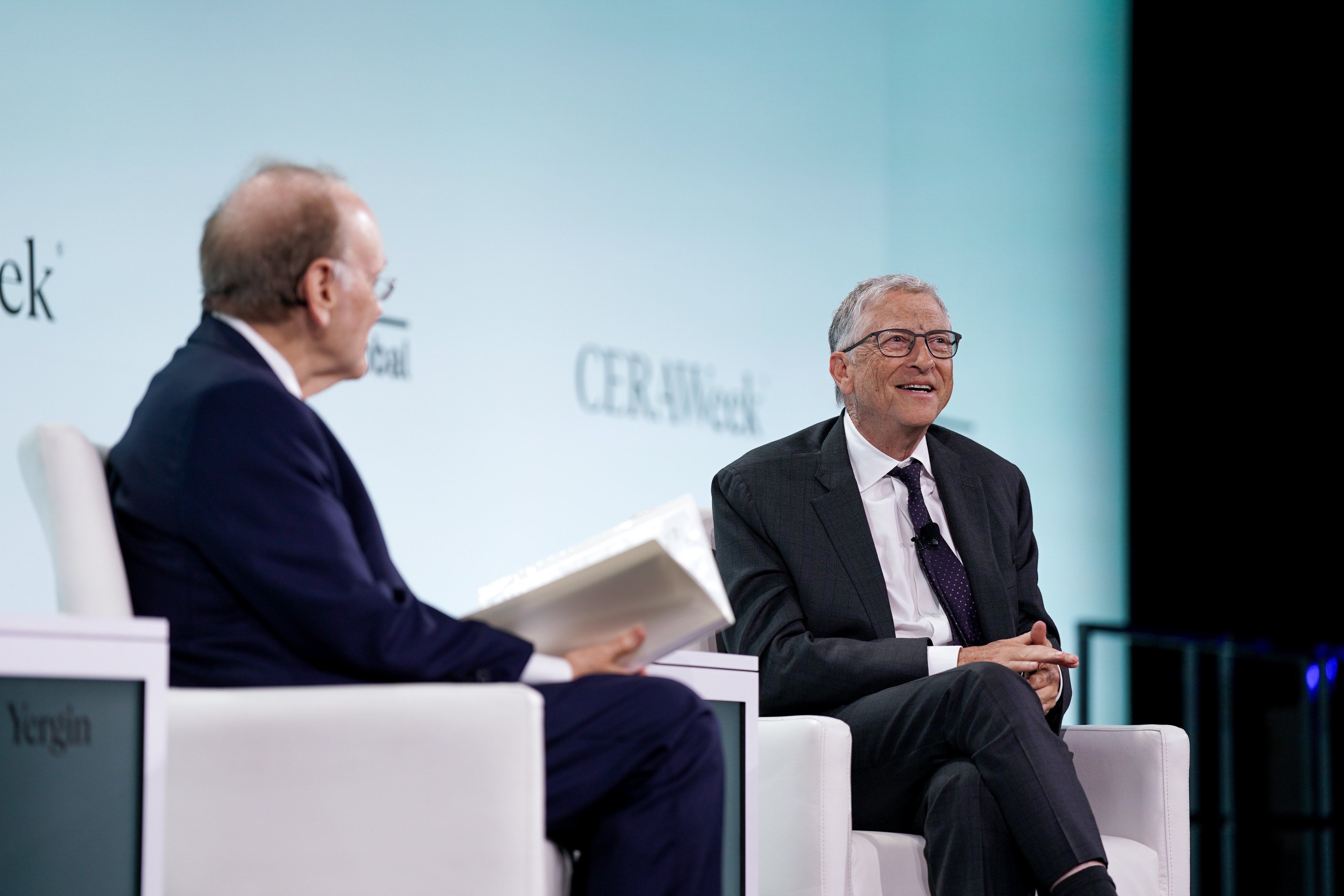overheard
Bill Gates talks AI, future of energy at CERAWeek address in Houston

In his conversation with S&P Global's Daniel Yergin, Bill Gates discussed AI, Texas as an energy transition hub, and more. Photo via CERAWeek
Bill Gates, renowned co-founder of Microsoft and founder of Breakthrough Energy, took the CERAWeek stage to a standing-room-only crowd to discuss his thoughts on the future of energy.
He was joined in conversation with Daniel Yergin, author and vice chairman of S&P Global, at the luncheon on Thursday, March 21. His remarks touched on three themes within the energy transition.
Texas as a hub for energy transition
Yergin started off the conversation inquiring about Gates and his recent tour around Texas, which included visiting energy companies' plants and facilities and their local communities. Though it might surprise people, given the history of oil and gas in the state, Texas has a strong presence in the energy transition, Gates says.
“There is some irony in the fact that so many of the capabilities to embrace (the energy transition) are here in Texas, whether it's the workforce or the permitting,” he says at the event.
Gates adds that while most of the portfolio companies at Breakthrough Energy were founded on the coasts, many turn to Texas when it comes time for their first commercial pilot.
He addressed a progress report on the energy transition as a whole.
“It’s really starting to move. There’s a lot of exciting technologies, and a lot of the big companies are coming in,” he says, specifically noting energy companies' presence at COP28.
“A heroic effort is beginning — I’m very excited about it. But we shouldn’t underestimate how difficult it will be,” he says. “There’s a lot of things that have to happen for these projects to go ahead. It’s far more difficult than anything I worked on at Microsoft.”
Steel and nuclear have big potential for disruption
Gates continued this thought but highlighting that some industries are less advanced than others.
“We’re just at the beginning of many things," he adds, noting that "the steel industry today is 99 percent the traditional process."
With that, steel has a lot of potential to be disrupted, and Breakthrough Energy has two companies working to make the industry greener, but it's an industry that's going to take time to evolve.
Nuclear is another sector Gates is excited about but is developing at a slower pace. Breakthrough Energy has five portfolio companies focused on Nuclear, including TerraPower, which Gates co-founded in 2006.
Despite nearly two decades of development, Gates says TerraPower is a "fast-moving" nuclear company in comparison to other companies out there.
AI's impact is still to be determined
The topic of artificial intelligence inevitably came up, and Gates explains that the technology has come a long way. Microsoft owns a portion of OpenAI, which created ChatGPT. Gates says he expected AI to evolve and to be able to be programmed to understand information to take longer to develop.
“We have achieved a threshold — an unusual threshold because we know how we’ve caused the knowledge represented, but we don’t understand how at a semantic level how that knowledge is being represented,” Gates says.
AI's current applications are within white collar activities, Gates explains, citing writing a regulatory permit or looking at evidence in a lawsuit. He explains that current AI capabilities could continually grow or remain stagnant for a while, he isn't sure.
"The thing that’s daunting is we don’t know how quickly it will improve," he adds.
Gates didn't comment on energy specific AI applications but noted that AI has advanced far past robotics, which would target blue collar roles.